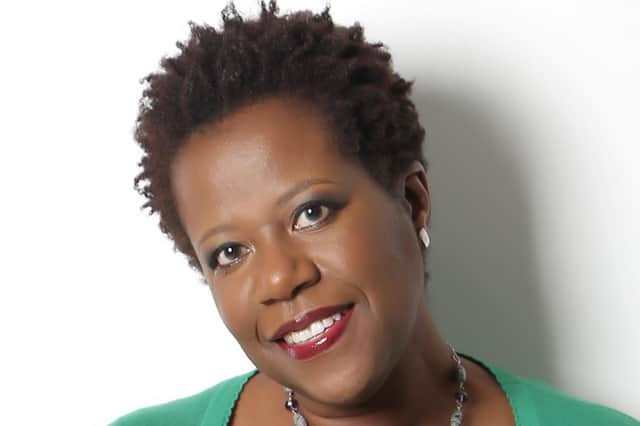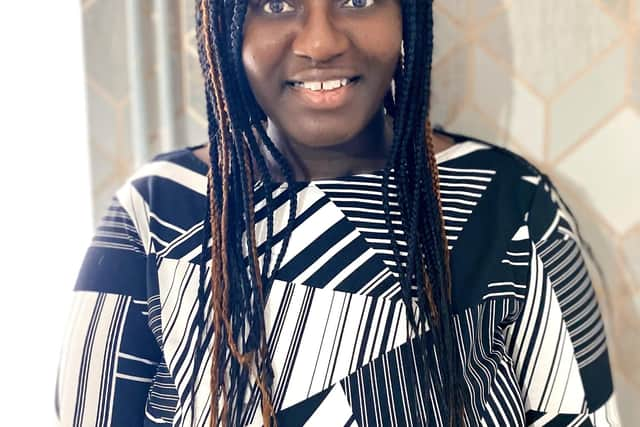'Why Sheffield's first African Caribbean market was so important and emotional'


As a black woman, growing up in Sheffield, I never saw myself represented as someone that mattered in society.
And for many others like me, or people from other marginalised or underrepresented groups, not being able to identify with the culture that you grow up in can have a profound, negative effect.
That is why representation is so important.


Why does representation matter you may ask?
Advertisement
Hide AdAdvertisement
Hide AdWhy do people need to see others like them in key aspects of the society that they live, in or the organisations that they work for?
For marginalised and underrepresented groups, it is important to see others like them, in order to feel like they belong, and that they matter.
We all have a need to belong.
And there are many things we find belonging in such as our families, our communities, society, our workplaces, our friends and social groups, faith groups, hobbies, and interests, and more.
We want to belong and feel connected to others who get us and accept us.
Advertisement
Hide AdAdvertisement
Hide AdWhen we don’t feel like we belong, it can have a negative impact mentally, emotionally, and physically.
It can make us feel worthless, sad, isolated, we can experience self-doubt.
People who are in the minority to the dominant group are more likely to experience imposter syndrome than those who are in the dominant group.
Feeling like we belong is important for our overall well-being.
Advertisement
Hide AdAdvertisement
Hide AdWhen we feel like we belong, it is easier to be our authentic selves.
When people feel like they belong, they are more likely to want to contribute their part to the greater good of the group that they belong to.
When people feel like they belong in society, it not only benefits the individual but benefits society as a whole.
Society needs people who want to do their bit for its greater good.
Advertisement
Hide AdAdvertisement
Hide AdWe are increasingly seeing organisations invest heavily in diversity, equity, and inclusion in an attempt to breakdown systemic, discriminatory practices.
And to level the playing field for those who have historically been put at a disadvantage.
But it is not enough just to have committees, and staff networks for underrepresented groups, or for these things to be a tick box exercise.
There needs to be representation of them throughout all levels of an organisation, and within the upper echelons of society.
Advertisement
Hide AdAdvertisement
Hide AdIt is harder to aspire to something when you don’t see others that look like you.
Seeing representation of people like yourself, helps to instil hope and a belief that if they can, you can too.
Unfortunately, I was unable to be in Sheffield to attend the African Caribbean market, but I feel like I have lived the experience through family and friends who attended and had stalls.
I wanted to know who was behind this great initiative so reached out to the person behind it all, to not only thank them for what they have done, but to find out what led to them doing it.
Ursula Myrie was the visionary behind the market.
Advertisement
Hide AdAdvertisement
Hide AdShe is a co-founder of ADIRA, a survivor-led mental health and well-being organisation that supports black people with mental health issues.
Having seen that the council had organised events celebrating Ramadan and Pride, she contacted the chief executive to find out what the plans were for Black History Month.
When asked if she had any ideas for it, she posed that of the African Caribbean market.
Every year there is a farmer’s market, however, this is not inclusive to the cultural produce that African and Caribbean people consume.
Advertisement
Hide AdAdvertisement
Hide AdShe put forward the idea of having a market that was culturally appropriate for Sheffield’s African and Caribbean community.
This is something I am hoping will not just be a one off event.
In an ideal world we would not need Black History Month, because black history is not just for October, and recognition of the Black contribution would be fully integrated into our society.
With the recent announcement that Wales is set to become the first UK nation to make teaching of black, Asian and minority ethnic histories and experiences mandatory in the school curriculum, perhaps we are now heading in the right direction to achieve this ideal world.
We just need the rest of the UK to follow suit.
Advertisement
Hide AdAdvertisement
Hide AdYou may wonder why I felt emotional about Sheffield having an African Caribbean market.
For me it signifies something that was lacking growing up.
That is a recognition that people who look like me are valued and have something of value to contribute to the wider community.
The emotions were a combination of wondering what it would have been like if I had been able to have that experience of the market as a child, combined with what it will do for children of African and Caribbean heritage in making them feel like they matter and that they belong.